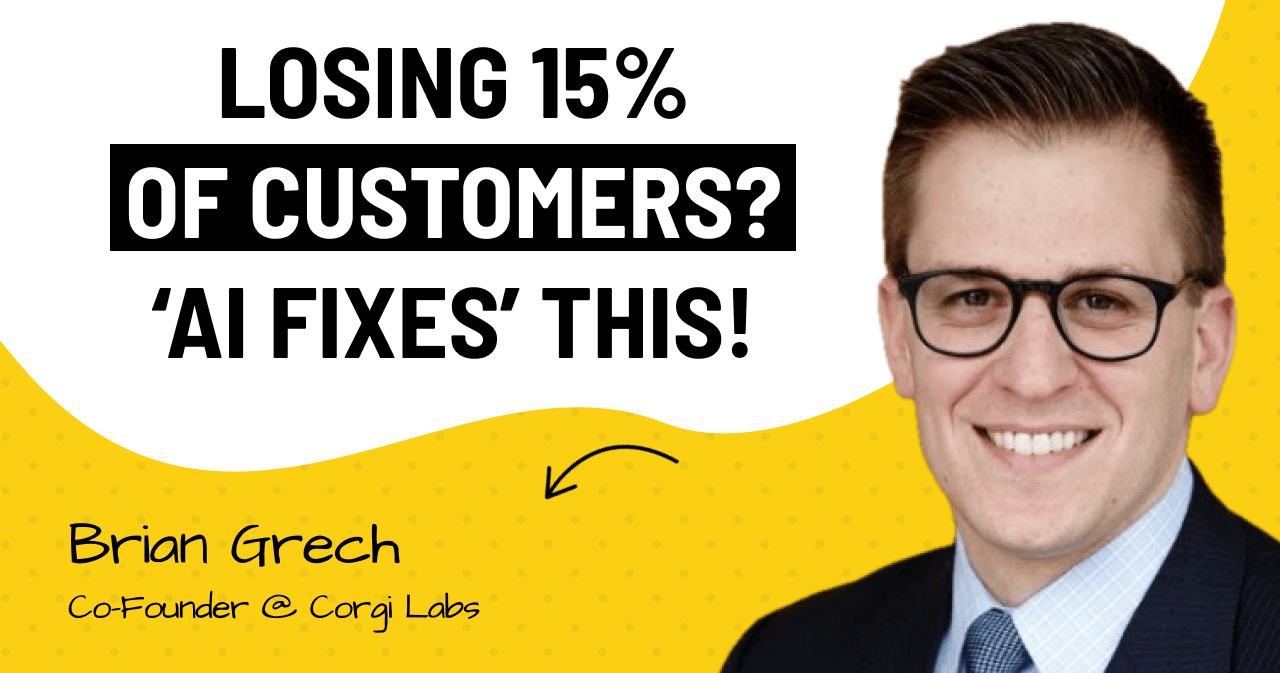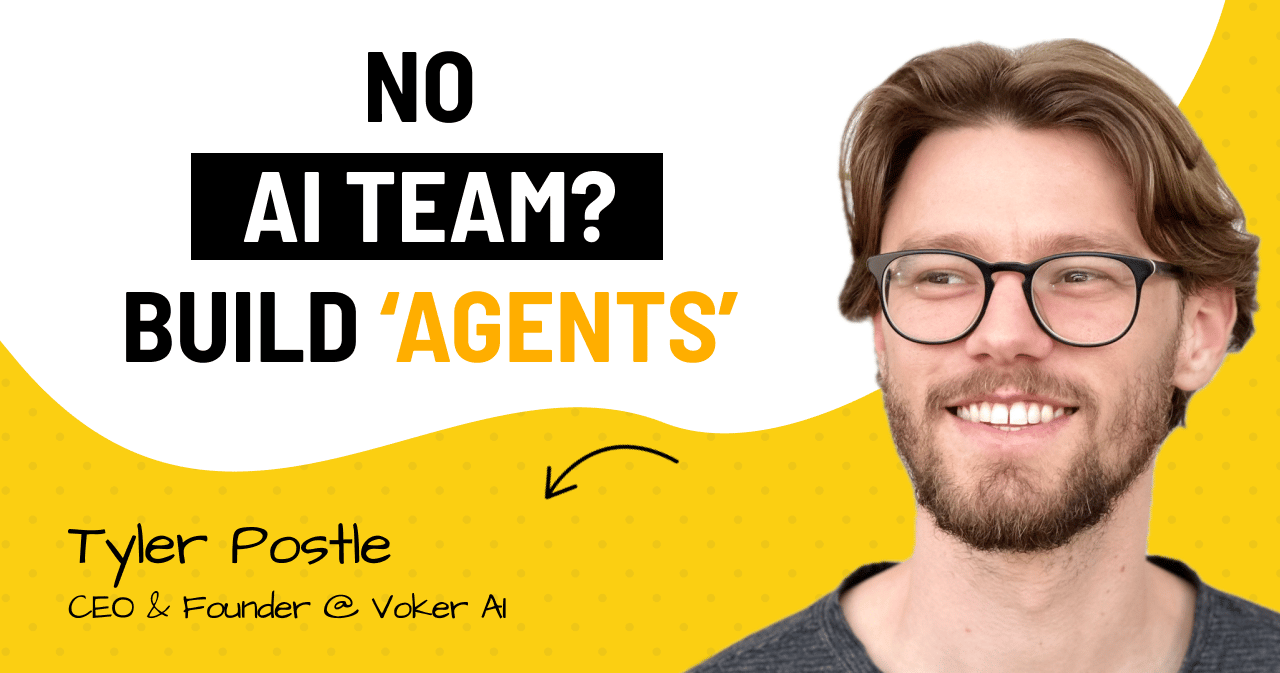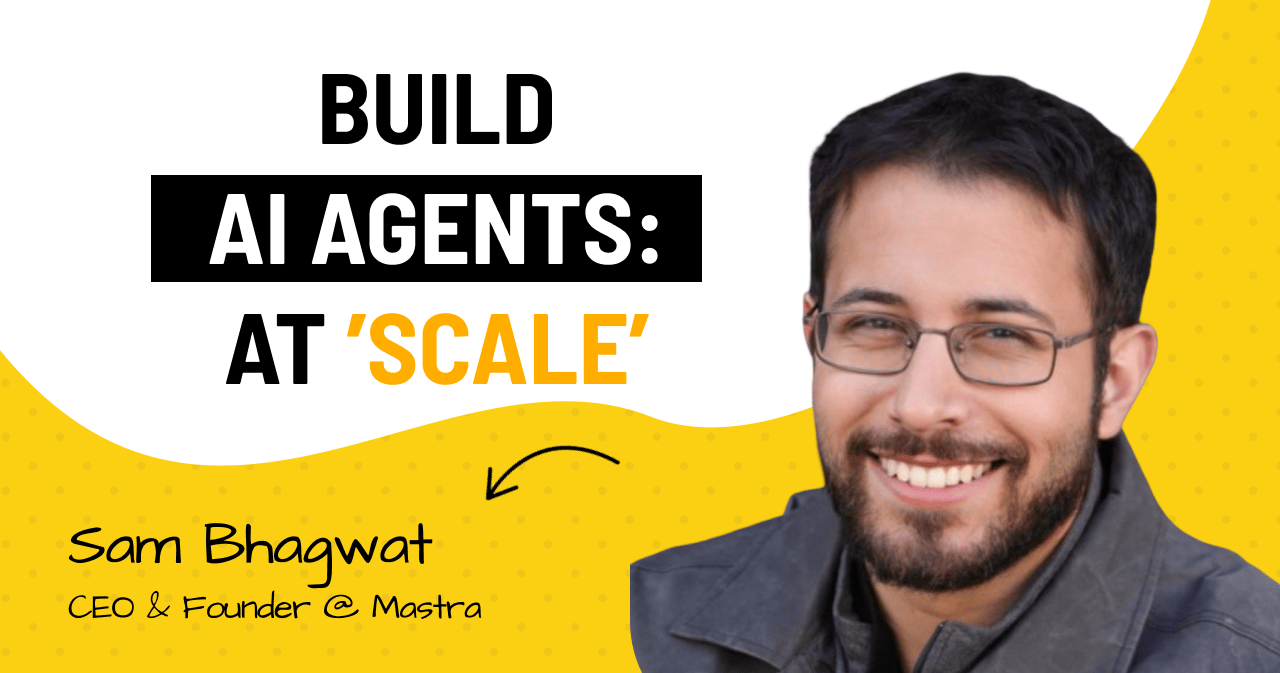Paul Kleen, founder of Pitchit recently sat down with us to discuss his journey in building an AI-powered sales assistant platform. From his early days in tech to raising $2.5 million in seed funding, Paul shared insights on product development, market fit, and the future of AI in sales and marketing.
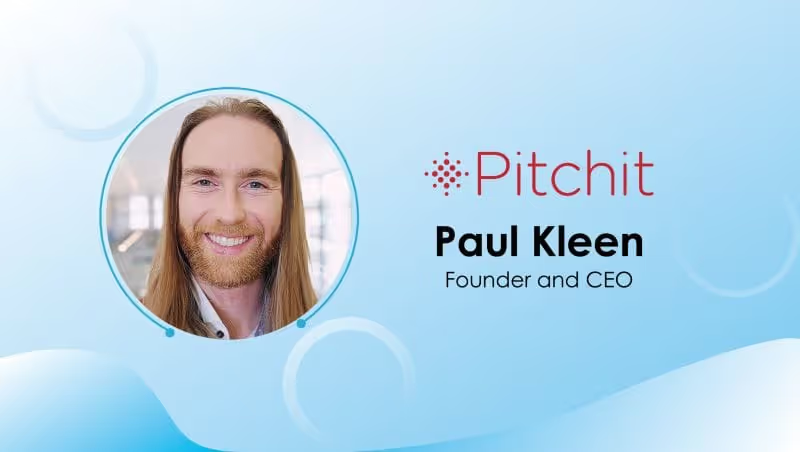
Company:
Pitchit
Founded:
2022
Headquarters:
Austin, TX
Key Highlights:
For those short on time, here are the critical points from our conversation with Pitchit founder Paul Kleen:
- AI-powered lead engagement: pitchit.ai integrates with sales teams facing high inbound lead volumes, using AI to qualify leads, book meetings, and capture additional information.
- Product evolution: Kleen's team initially developed a multi-channel outreach platform, but encountered compliance challenges. This led to refocusing their technology on inbound lead qualification, sparked by interest from a major telecom customer.
- Iterative development: The platform adapted to focus on inbound lead qualification, responding to market needs and compliance realities.
- Staged fundraising: $2.5M in seed funding was secured by approaching investors at progressive milestones, using customer success stories to validate market demand.
- Expanding capabilities: pitchit.ai began with text-based AI agents and is now incorporating voice capabilities, addressing different aspects of customer communication.
- Targeted acquisition: After finding broad advertising ineffective, the team leveraged industry networks and events to secure initial customers in their niche market.
- AI as enhancer: Kleen envisions AI making marketing and sales teams more efficient by automating repetitive tasks, rather than fully replacing human roles.
- Email's evolution: Declining response rates to traditional email outreach indicate a shift towards more interactive and immediate communication channels.
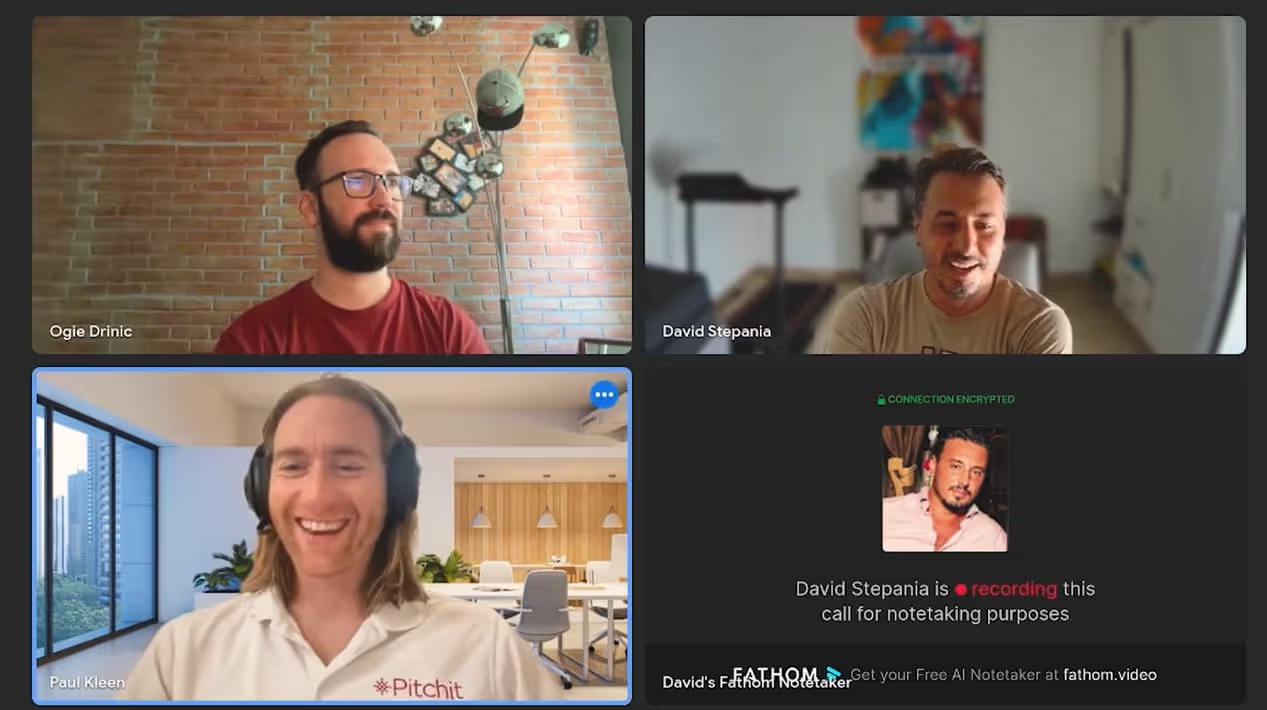
See the full conversation here 🔥
1. Can you tell us a little bit about Pitchit and how it works?
We plug into sales teams that do really heavy lead generation so they have a lot of inbound leads you need help figuring out how to get a hold of them and how to engage them all and they're struggling with the volume... We score conversations, answer questions, book meetings, and capture additional lead info... Hands off qualified leads to human sales reps to close deals.
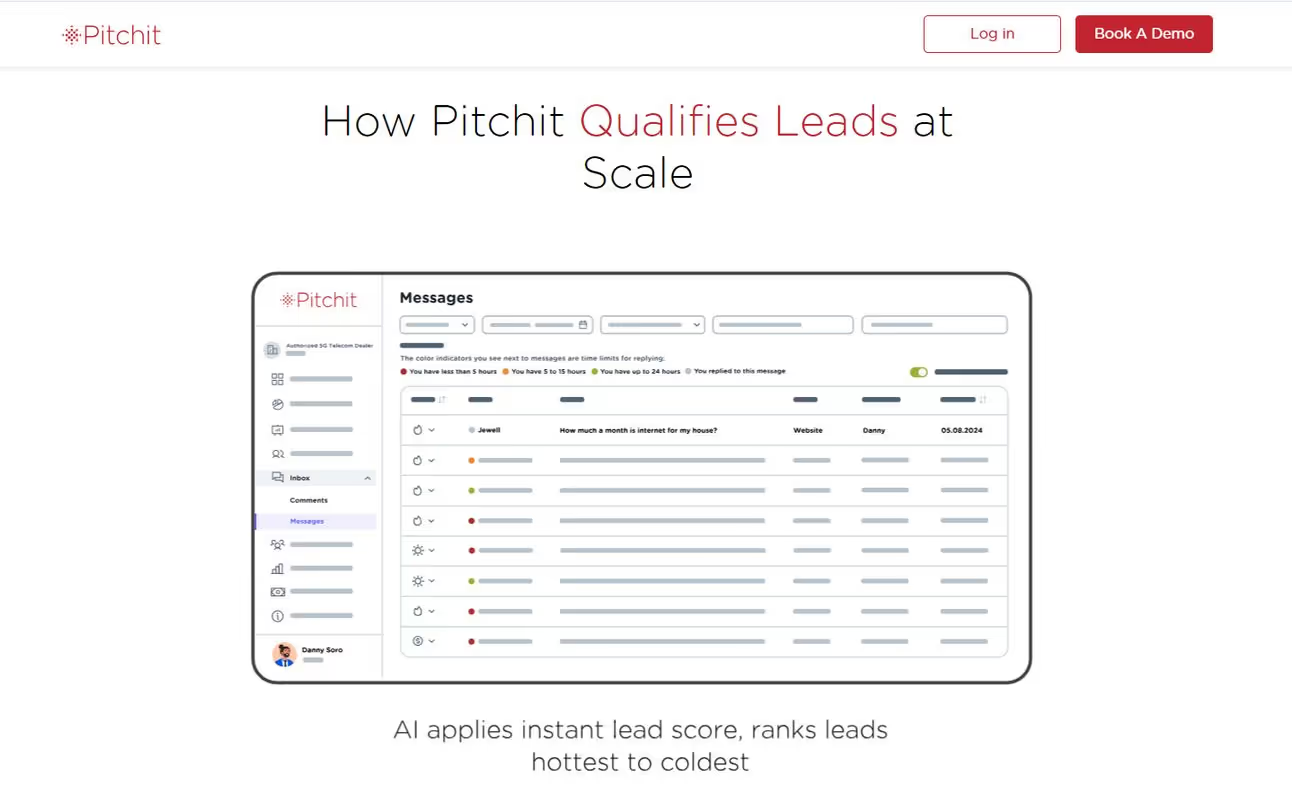
2. You mentioned that pitchit.ai works with companies that have a high volume of inbound leads. Can you elaborate on the scale of lead qualification your platform handles?
We work with people that have a really heavy volume of leads. And one of the metrics I look at as a KPI is how many leads are requalifying per month. And if that number goes up every month, you know revenue for our company will go up every month. And so that's actually one of the major KPAs I look at in addition to how much revenue we post on any given monthly report with our boardroom.
3. Can you tell us more about the 130,000 leads worth $280 million in revenue that pitchit.ai has qualified? Is this spread across multiple customers?
That's a gross number for everybody on Earth. Oh, yeah. It's for everybody. It's on our platform. I can't remember when I pulled the totals, but I think it was like a month ago when we pulled them for that, that counter on our homepage. Well, you know, we'll obviously update that over time, but the reality is that we work with people who have a really heavy volume of leads.
4. How did you raise a $2.5M Seed Round?
This was raised over period of time. Basically each time that I felt like there was some kind of milestone, I would go up the ladder to the next, you know, hierarchy of investors... We had to prove the market validated and needed this product and so the case study of a customer who came in and got four million dollars in monthly revenue after plugging pitches into their sales process and that was like two and a half times the results that they were getting before using pitch it that was the evidence that if we actually built this product people would want it.
5. What did you learn from your experience raising a seed round, particularly from the many investor meetings you had?
It was 130 investor meetings. I thought he was just getting the out of me when he said that. It was 130 meetings that I think you were right actually you were a little bit conservative I had to do more than a hundred. But he went along the way like Silicon Valley Bank went out so we lost all our money for three weeks. There were multiple times when our bank account got to zero.
6. How does your solution get deployed in a company?
Well, we've got an iPaas provider that helps customers of ours to sync their CRM or their form fill or their Excel or Google sheet file for their advertising channels... They would sync through our API, their Outlook calendar, their Outlook email, their Google calendar, and their Gmail account... They'd sync all the channels that we offer for communicating on top of email, which is text, WhatsApp, and Facebook, Instagram.
7. Can you describe how your platform integrates with existing company workflows, particularly in a CRM like HubSpot?
Yeah, so the way this would work in terms of HubSpot is that any comment or direct message from that Facebook page would be integrated into Pitchit. Thanks for being engaged with them with text-based conversations there. They'd sync all the channels that we offer for communicating on top of email, which is text, WhatsApp, and Facebook, Instagram. We'd extract all of their Q&A and answer it all, we'd pick the time of day, and we'd book the meeting on behalf of that sales rep.
8. Is Pitchit currently utilizing voice-based AI agents, or is the platform primarily focused on text-based interactions?
We started with text and we are now moving on to voice and that's probably at least for the time meeting where it will end. Those two mediums are by far the most important and all of our customers know the reason that we started with text is because right now don't have time to do any of the text but they do have time to do the dials.
9. You mentioned pivoting your product. Can you tell us more about that process and what led to it?
We started developing it. This was like two years ago before we went public and live, and while we were developing it, we realized that really the reason that none of these platforms really exist is because you just get shut down when you try to go multi-channels. We pivoted, and we said, right, what do we have here? We've got really cool multi-channel pipes, but we can only use them for operating users, right?
10. Can you explain some of the challenges you faced when trying to build a multi-channel communication platform?
Yeah, I think we did talk about like a couple of times how it was going to be hard to pull off this multi-channel thing just because they all have different APIs and they all have different perspectives. It's like every day you're going to be picking which problem to work on. They started shutting the APIs down, UX for example, that shut down and that just killed us. We had all kinds of issues with LinkedIn. That was just a waste of time.
11. How did compliance and legal restrictions influence the development and eventual pivot of your product?
Well, we were developing it, and we realized that really the reason that none of these platforms really exist is because you just get shut down when you try to go multi-channels. We had to get rid of a couple of channels like LinkedIn and replace them with some others. So it was like a pretty minimal tech debt cleanup job to pivot into that new space.
12. Where do you think AI is going? Are we gonna need these products in five years?
I think that you're going to see marketing teams come back into Vogue with AI because they'll be more profitable and you'll be able to actually justify having them on payroll as the department in a like job duty. And I think you're going to see SDRs and account executives working more profitably as well... I can tell you that AI is just not able to take over end-to-end all of the things that salespeople and marketing people have to do.
13. What's your view on the effectiveness of cold email in the current market?
Email is almost zero, even on opt-in users is almost nothing. The only thing I have seen as a side effect of heavy email is you could get meetings booked from email. So email does have a pretty similar booking rate... But if you ask them complex stuff that requires a reply and a threaded conversation, they're just not going to reply to you. But if you ask them to click a link to book a meeting and that means they can be done with your email, they might do that.
14. Could you share how you acquired your initial customers, particularly the first five to ten?
It's, you know what, we've tried from advertising and so my initial thought was let's run a bunch of ads and then we realized that this is not like a broad, appealing platform, the applicable... What we have found worked best was firstly, my network was big enough to have a couple of these dealers in it. So that was where we got our first two, right? But then I had to expand my network by going and doing keynote presentations at Expos and conferences where these dealers go, where all the vendors of these dealers go.
15. Could you walk us through your founder journey and explain how you reached the milestone of raising funding for your current product?
I got into tech as a data scientist at a company called Frame Data. That was a Y Combinator grad in the 2014, winter class. And we built that company and sold it to Square. And then I was head of Growth at Paper Space, also a Y Combinator grad... And then I got into consulting and spent something like $105 million in advertising for huge companies like Hilton and Uber and Postmates and Twist Bioscience and some really cool stuff. That's when I started finding this problem of multi-channel advertising and messaging and like issues where with qualifying all the leads that come through these pipelines and issues that arose from pixels and cold email not working anymore, right?
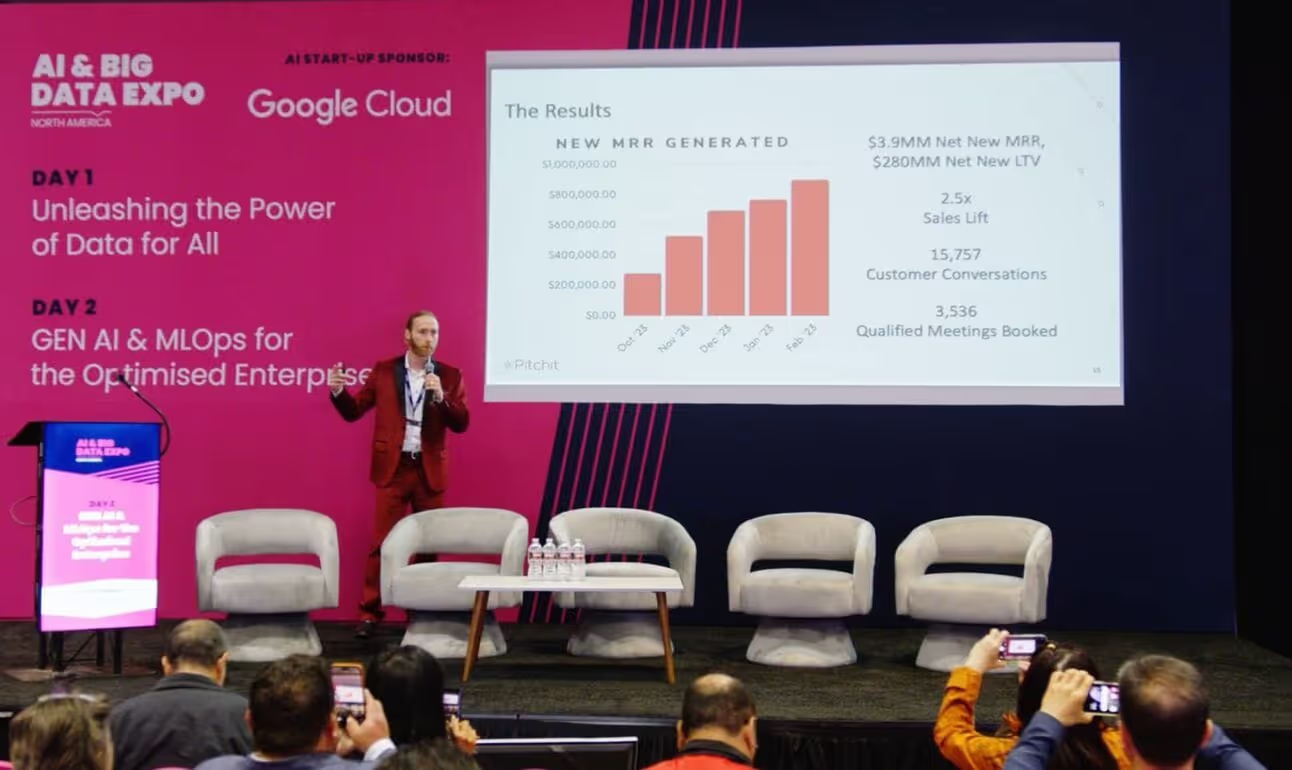
16. Can you share your perspective on the effectiveness of different communication channels for sales?
I have seen Facebook, Instagram, and WhatsApp reply rates equivalent to texting reply rates. And man, email is almost zero, even on opt-in users is almost nothing. The only thing I have seen as a side effect of heavy email is you could get meetings booked from email. So email does have a pretty similar booking rate.
Interview with
Paul Kleen
Speaker, Operator, Founder | CEO @ Pitchit


